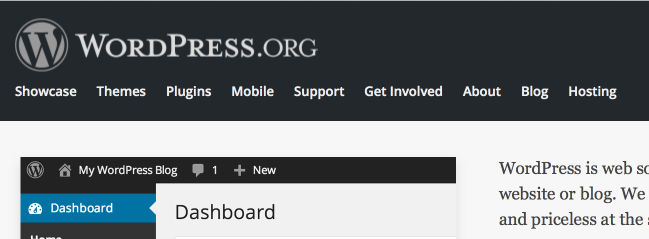Jaff Yablon, who owns and operates The WordPress Helpers, is being sued by the WordPress Foundation for trademark infringement. Reported first by Domain Name Wire, the WordPress Foundation wants Yablon to stop using its trademarks, dismiss the opposition proceeding, pay the foundation for any profits related to use of the WordPress trademarks, pay up to $100,000 per infringing domain name, transfer the domains and pay other fees and damages.
The WordPress Foundation oversees and manages WordPress trademarks. In its trademark policy, it states no website may use WordPress in its top-level domain name without explicit permission.
Permission from the WordPress Foundation is required to use the WordPress or WordCamp name or logo as part of any project, product, service, domain or company name.
Yablon owns the following domain names which violate the policy, TheWordPressHelpDesk.com, TheWordPressTrainers.com, TheWordPressTeachers.com, TheWordPressDoctors.com, and TheWordPressTutors.com. All of the domains forward visitors to The WordPress Helpers.
The WordPress Helpers Website
The WordPress Helpers is a site devoted to the WordPress project. It features articles on WordPress, tutorials, and philosophical discussions surrounding the software. A portion of the site lists stores recommended by Yablon for people to purchase WordPress products. He also sells WordPress educational services for a flat fee.

Shortly after launching the site in January 2015, Yablon was contacted by the WordPress Foundation’s lawyers concerning his domain name. According to Yablon, he negotiated with the Foundation to try to use the domain name. Negotiations failed and on June 18th, 2015, the Foundation filed the lawsuit.
Lawyers Battle it Out
The United States Trademark and Patent Office is a public website where visitors can discover and file for patents and trademarks. On November 7th, 2014, the WordPress Foundation submitted an application to register the WordPress character mark which consists of standard characters, without claim to any particular font, style, size, or color.

Here’s an example of where the mark is already in use.

Once applications are published to the Trademark Official Gazette, parties who believe it will be damaged by the registration of the mark may file a notice of opposition with the Trademark Trial and Appeal Board. If no party files an opposition or extension request within 30 days after the publication date, then a certificate of registration will be issued eleven weeks after the publication date.
On May 5th, 2015, Yablon filed an opposition request stating that if the Foundation successfully registers the mark, his company and others would be gravely and adversely effected. The Foundation’s lawyers responded on June 19th, 2015, by asking the Trademark Trial and Appeal Board to suspend the registration process until the civil lawsuit in the District Court has completed.
On June 21st, 2015, Yablon filed a motion requesting default judgement and objected to the Foundation’s request to suspend the preceding. The case has yet to play out in court but lawyers from both parties are battling it out in the public sphere.
A Conversation with Yablon
I spoke with Yablon on the phone for over an hour to figure out why he’s put himself in this position. During our conversation, I determined that he’s intelligent and has a good understanding of trademark law. He believes the WordPress Helpers website furthers the WordPress project by being an informational resource.
Using WordPress in his domain name is a business decision that allows people to instantly know what his site is about. He genuinely cares about the WordPress project, its community, and respects the Foundation’s rights to protect its trademarks.
He also told me that he’s not out to make a buck or prove a point. He’s defending his business from an entity that has a domain policy, not a law. He stressed that he’s not a villain as many in the WordPress community have made him out to be.
Near the end of our conversation, he said he just wants to run his business with his current domain name and is willing to make any changes to his non-affiliation disclaimer the Foundation deems necessary.
What’s at Stake
If Yablon gets the United States Patent and Trademark Office to deny the Foundation’s trademark and can win his lawsuit, it would make it easier for others to use WordPress in top-level domain names. It would be a crushing blow to the Foundation and limit its ability to protect WordPress’ branding.
Public opinion on Twitter, the Advanced WordPress Facebook group, and other social outlets suggest an overwhelming majority of people are in support of the Foundation. It will be interesting to see how the case concludes and what legal precedent it may set for others.

First.